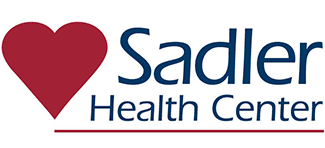Since the outbreak of COVID-19, there have been significant shortages of infant formulas in stores. Current shortages have been largely caused by supply chain issues and the recent recall of several baby formula products over concerns about contamination.

Here are some tips on finding formula your baby needs during the shortage, and what you may safely consider if you cannot find any.
- Check smaller stores and drug stores, which may not be out of supply when the bigger stores are.
- If you can afford it, buy formula online until store shortages ease. Purchase from well-recognized distributors, grocers, and pharmacies rather than individually sold or auction sites.
- Check social media groups. There are groups dedicated to infant feeding and formula, and members may have ideas for where to find formula. Make sure to check any advice with your provider.
- If you find it in stock, it can be tempting to buy as much formula as possible right now, but the American Academy of Pediatrics (AAP) advises buying no more than a 10-day to 2-week supply of formula to ease shortages.
- Call your pediatrician if you cannot find the formula you need for your baby. They may have samples in stock, connections to other local organizations or ideas of other places to call, such as your local WIC clinic.
Below are answers to frequently asked questions:
I found small amounts of several different baby formulas. What is the best way to switch among the brands?
It is likely that your baby will do just fine with different formulas as long as they are the same type. If your baby does not like the taste or has a hard time tolerating a different formula, you may want to try gradually introducing small amounts of the new formula mixed with the usual formula. Slowly increase the amount of the new formula.
Be patient, since it may take some time for your baby to get used to a new formula. If you have questions about whether your baby is tolerating the new formula, call your provider.
My infant needs a specialty metabolic baby formula, but I can’t find any. What should I do?
Abbott is releasing limited quantities of Similac PM 60/40 and other metabolic formulas for babies in urgent need. Your provider’s office can fill out a request and, if it is approved, the formula can be shipped to your home. Talk to your provider about safe, comparable specialty formulas for your baby.
Only one brand of baby formula is covered under the WIC program, but I can’t find any. What should I do?
Pennsylvania is allowing parents who use WIC benefits to buy other brands of baby formula or different sizes and forms like ready-to-feed formula.
I have a 3-month-old infant and can’t find my usual baby formula. What should I do?
This is a very difficult problem. If you can find another similar formula, it’s OK to make the switch. If you use a special formula for allergies or other special health needs, contact your provider to get a list of comparable formulas you can use.
Can I add extra water to formula and give my baby a multivitamin to make up the nutrients?
This should never be done. Adding extra water to formula can dilute the levels of protein and minerals, and lead to low sodium levels in the blood and other electrolyte disorders that may require hospitalization. Always follow label instructions or those given to you by your provider.
Can I make my own baby formula? I’ve seen a recipe online using evaporated milk that people say was used safely in the 1940s.
Homemade baby formula is not recommended.Although homemade formula was used in the past, it also came with many risks to infants. Online recipes for homemade baby formula have significant safety concerns regarding contamination and nutrient concentration. Using homemade baby formula can harm your infant. Some babies have been hospitalized from reported use of homemade formulas.
What is the earliest age I can start giving my baby solid food to stretch my formula supply?
Solid foods should not be used to stretch baby formula supply. Formula contains all of the nutrients young babies’ need, while solid foods may not. Infants generally are ready to eat solid food when they are about 4 months old, but it depends on their stage of development. At 4 months you can begin offering cereal, 1-2 tablespoons twice a day. Add 1-2 tablespoons of one fruit or one vegetable at a time once a day. Talk with your provider about when your baby may be ready for solid foods.
I heard the government will be importing baby formula from other countries. Is that safe?
The Food & Drug Administration (FDA) is working to make sure procedures are in place to verify production standards, labeling and shipping of imported baby formula brands that previously have not been sold in the United States. European baby formulas are regulated by the European Food Safety Agency similar to how the FDA regulates U.S. formula, and are highly reliable.
Can toddler “formula” substitute for regular baby formula?
Toddler drinks, often found in the formula isles, are not recommended for infants. However, if you absolutely have no other choice, these products can be safe for a few days for babies who are close to a year of age.
Can I give my full-term baby premature formula?
Formulas designed for babies who were born premature (and have “catch-up” growth to do) can safely be used for a few weeks to feed full-term babies if nothing else is available.
Is cow’s milk a safe alternative to baby formula?
If your child is older than 6 months of age and is usually on regular formula (not a specialty product for allergies or other special health needs), this may be an option. In a pinch, you could feed them whole cow’s milk for a brief period of time (no more than a week).
This is not ideal and should not be done for more than one week. One concern with giving cow’s milk to a baby who is 7-12 months old on a long-term basis is that it does not contain enough iron. This can lead to anemia. If you have to use cow’s milk to feed your infant, ideally do so for as short a time as possible. It’s also important to give your baby plenty of iron-containing solid foods, such as baby food made with meat or iron-fortified cereals.
If you need to give your baby cow’s milk for a week, talk with your provider.
What about feeding my baby goat’s milk?
Goat’s milk is not approved for babies in the United States. However, there are goat milk-based baby formulas registered in other countries that may be among those considered for accelerated import approval by the FDA.
Can I use plant-based milk instead of baby formula if needed?
Plant-based milk alternatives generally are not recommended for babies under a year of age. Soy milk may be an option to give babies who are close a year old during the shortage, but not for more than one week. If you can’t find formula and have to use soy milk, be sure to buy the kind that is fortified with calcium and vitamin D. Make sure to change back to formula as soon as some is available. Be especially careful to avoid almond milk or other plant milks as these are often low in protein and minerals. Talk with your provider if you are considering using plant-based milk.
How long can baby formula be used past a “best by” date?
Generally, formula should not be used past the “best by” date because it may no longer be safe or have the required levels of nutrients.
Remember: Don’t hesitate to talk with your provider if you have any concerns you have about your baby’s health and nutrition. If your child has special health needs, be sure to check with their doctor about medically appropriate and safe feeding alternatives
